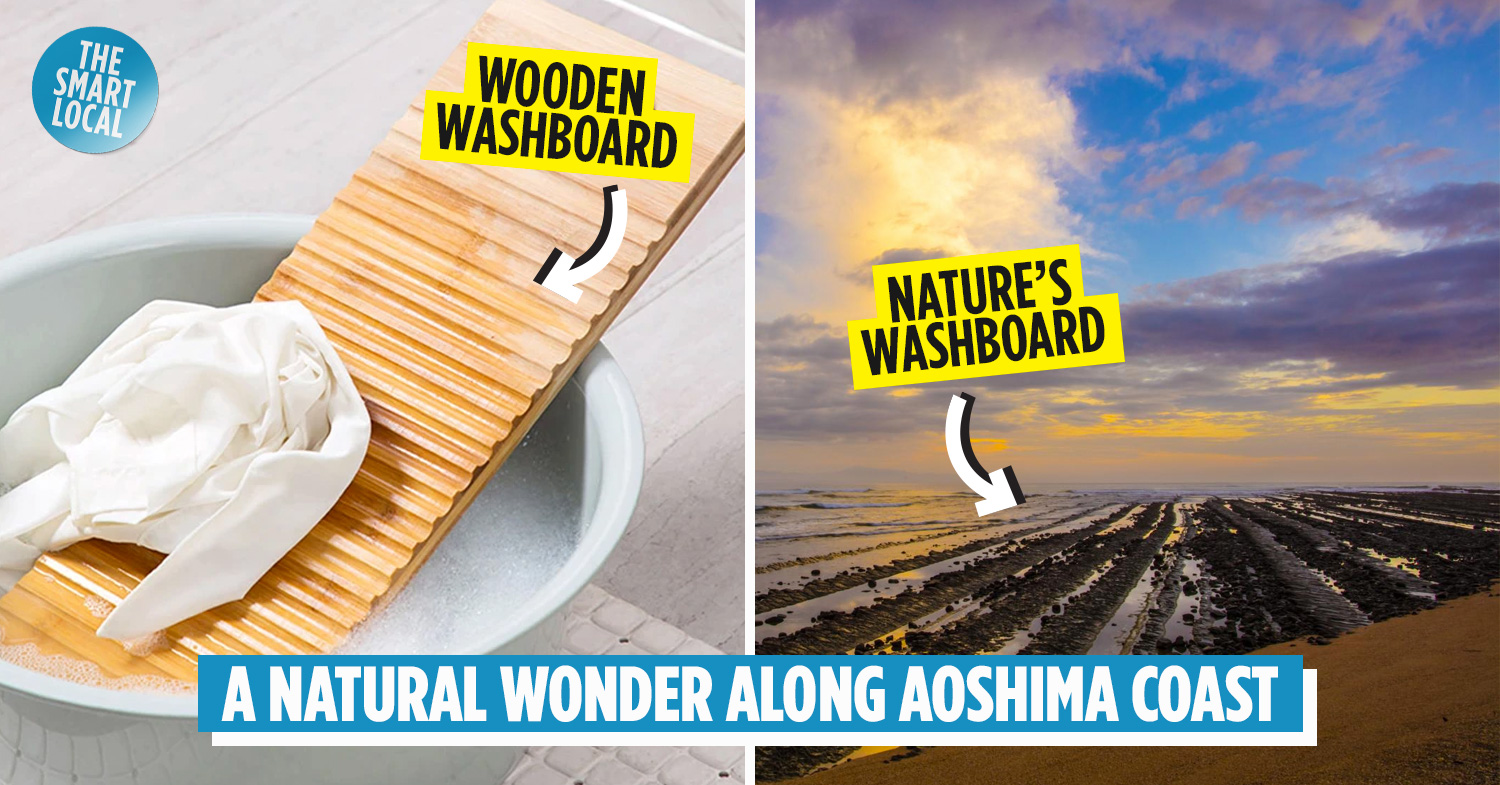Devil’s Washboard on Aoshima Island
The sea is powerful. It shapes the world, creating beautiful geological formations for us to admire. Along the coast of Aoshima Island, you can find one such natural wonder. Aptly named the Devil’s Washboard (鬼の洗濯板; Oni No Sentaku-Ita), the expansive rock formation is a result of wave erosion over millions of years.
A washboard-like rock formation
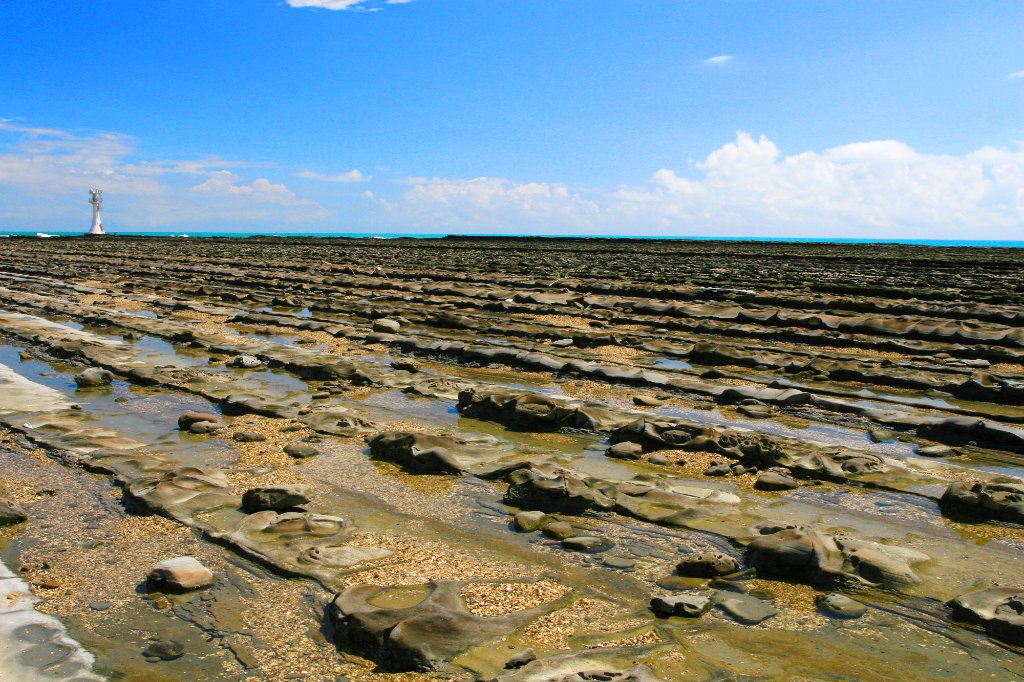
Image credit: 裕幸 坂
Once you cross the torii gate on Aoshima Island, a spectacular spread of rock ridges will appear before you. The undulating parallel depressions run for about 8km, from Kinchaku Island to Aoshima.
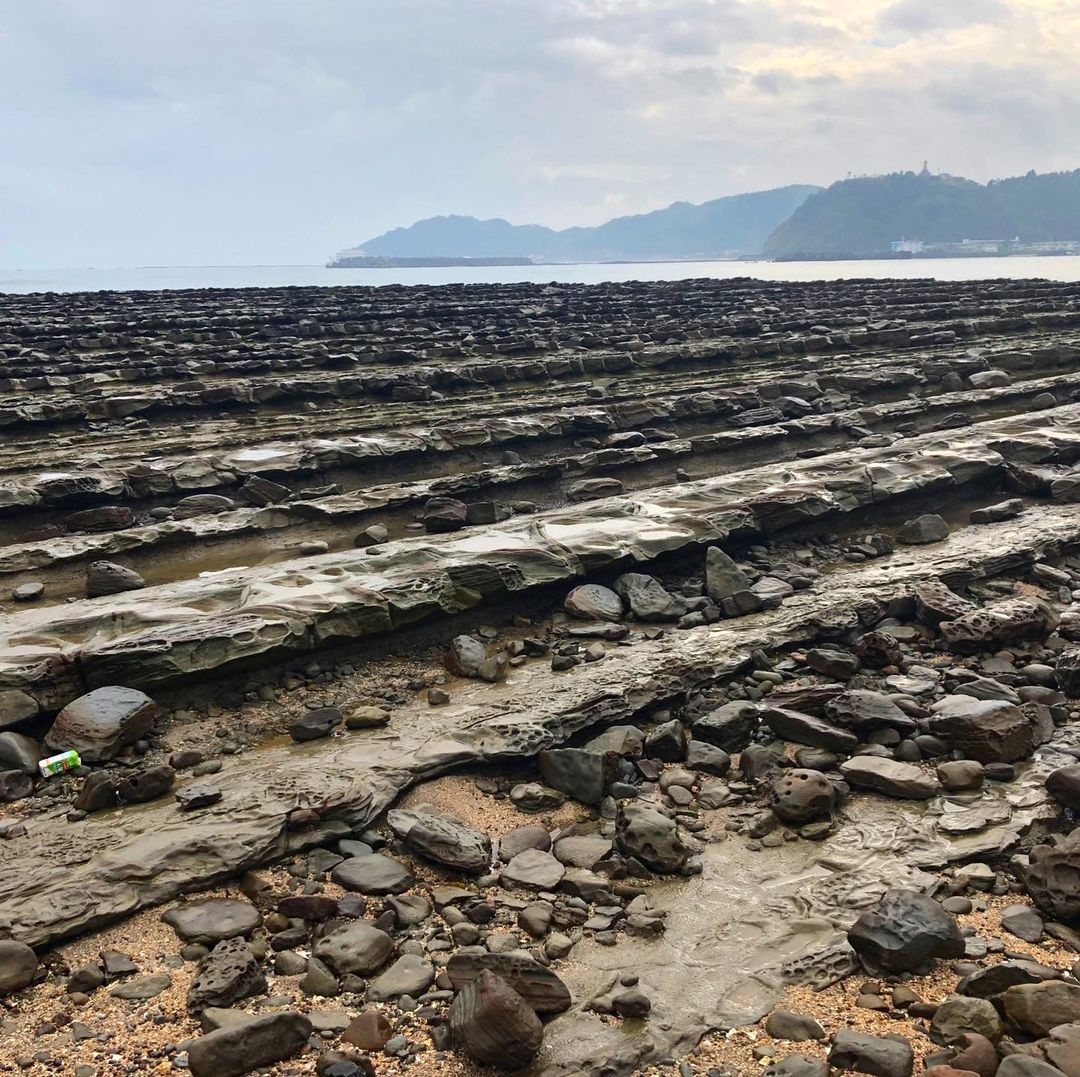
Image credit: @hrpagu12
The pattern of rock formation resembles the grooves on a traditional wooden washboard, while the massive scale of the natural phenomenon makes it seem like a washboard only a devil would use. That’s how the name “Devil’s Washboard” came about.
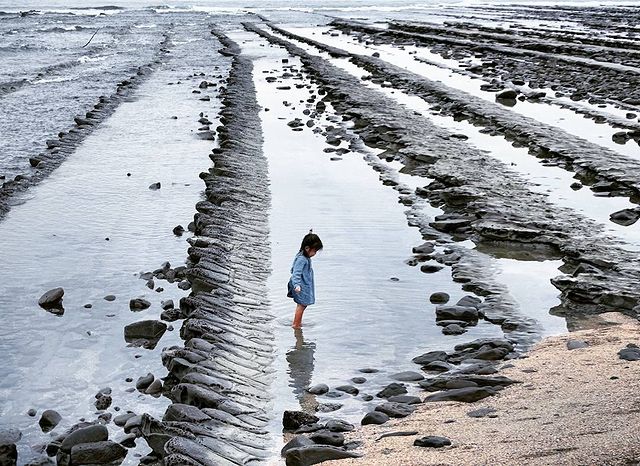
Image credit: @andy1um
The Devil’s Washboard makes for an ideal photo spot. The turquoise waters, stretching rock ridges, and white sands marry into a dynamic photo composition. Just be careful of slippery rocks as you manoeuvre along the coast.
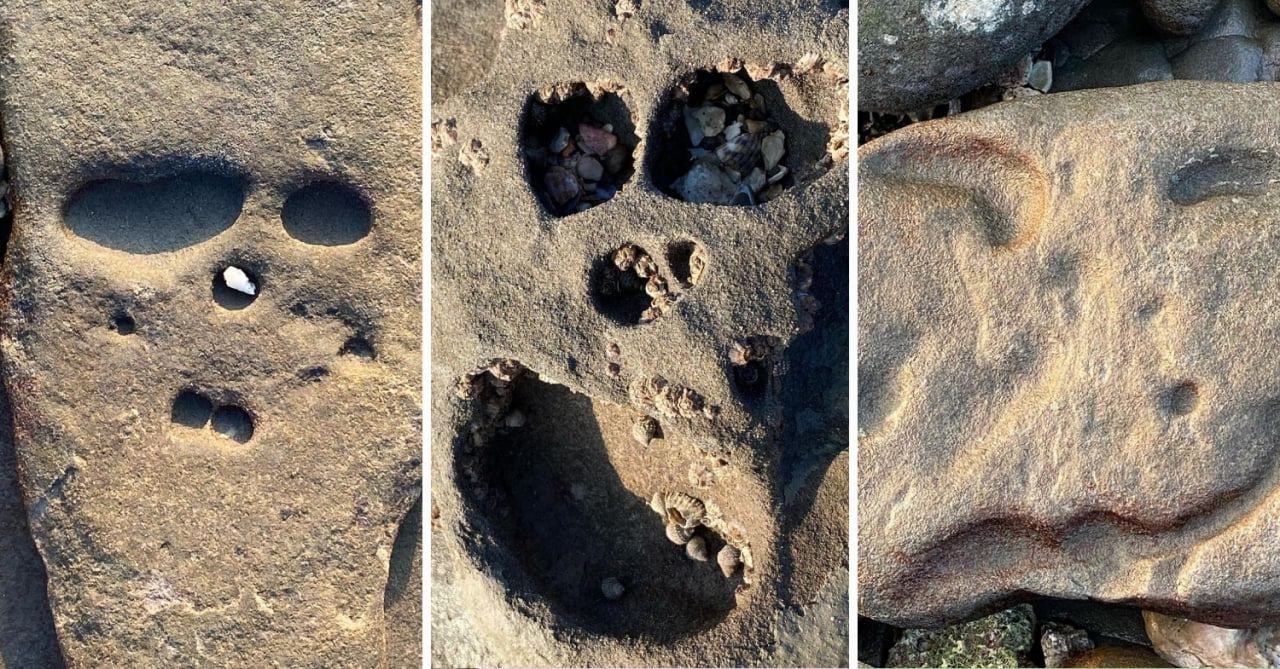
(From left) Image adapted from: @take_sun137, @take_sun137 and @take_sun137
If you take the time to observe the individual rocks along the coast, you may also discover interesting finds. For instance, there are some indentations that form shapes resembling skulls and monsters, sealing the place’s association with the supernatural.
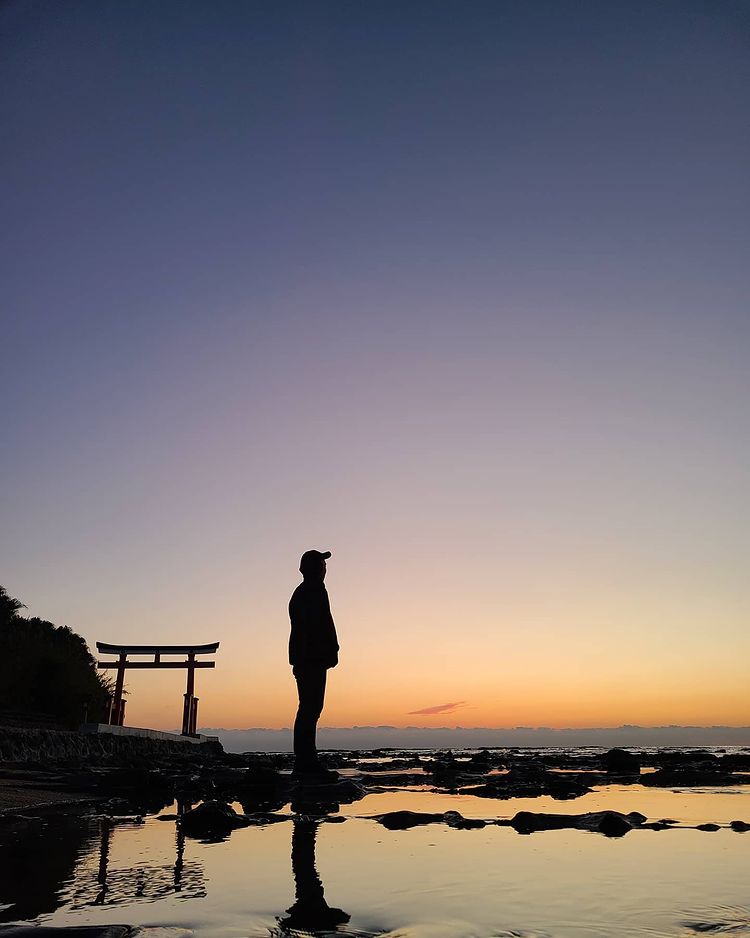
Image credit: @sr____530
The spectacular views of the Devil’s Washboard are best enjoyed during sunrise or sunset, when the tide is at its lowest. That’s when sea creatures emerge from their hiding places along the coast, and you’ll also be able to appreciate the rock formation without the water obscuring your view.
How the Devil’s Washboard was formed
The rock formation is a geographical wonder that showcases the erosive power of the sea.
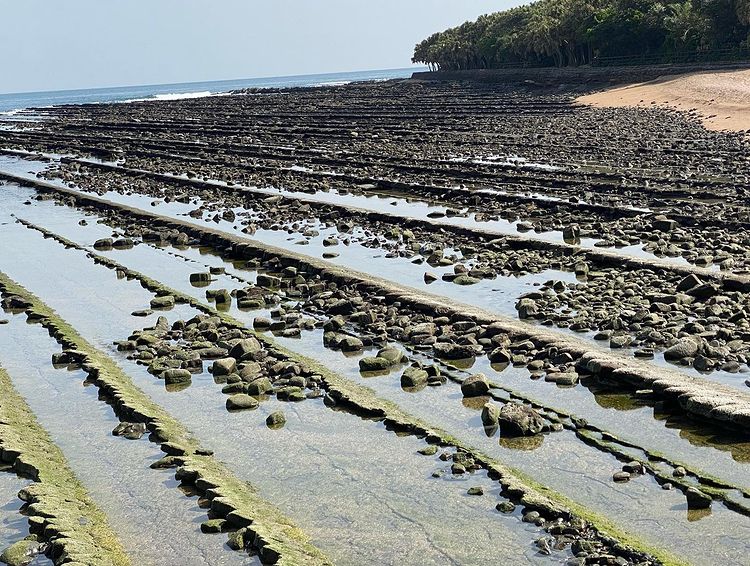
Image credit: @1201akane
About 7 million years ago, during the late Miocene period, layers of rocks were uplifted due to tectonic movements. The alternating layers of hard sandstone and soft mudstone meant that there were different rates of erosion as the hard sandstone is more resistant to erosion, compared to the soft mudstone.
Over time, the seawater chips off the rock layers unevenly, forming the washboard-like pattern we see today.
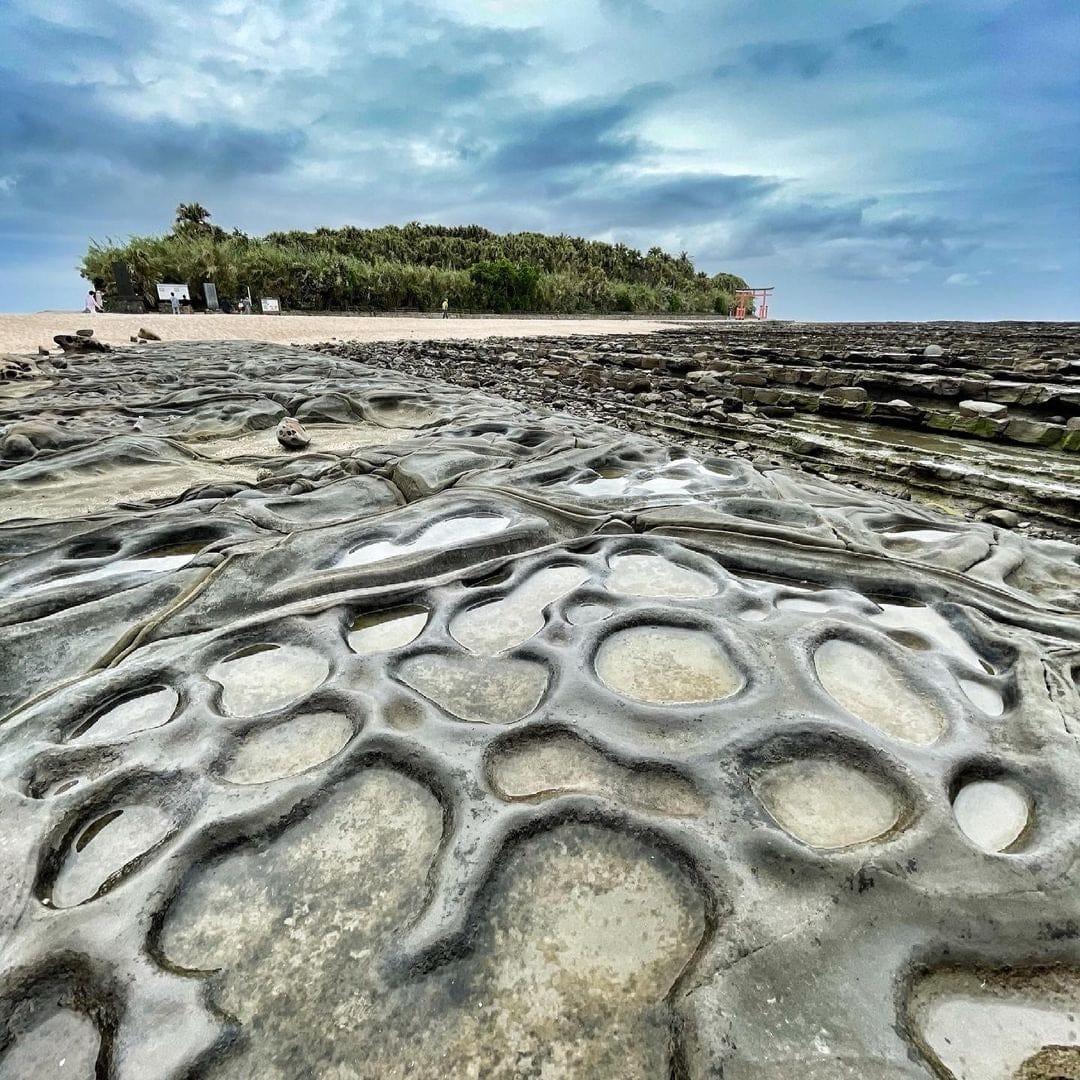
Image credit: @hiranok009
Along the formation, you can also find spherical depressions. These are likely to be potholes, which are a kind of erosion feature caused by swirling rocks in the seawater.
Getting to Devil’s Washboard
Man-made attractions are everywhere, but a natural attraction like the Devil’s Washboard takes Mother Nature millions of years to accomplish. Don’t miss out on the coolest “washboard” on earth when you visit Aoshima Island.
Getting there: Devil’s Washboard is located on Aoshima Island. To get to the island, take a ~41-minute local train ride from Miyazaki Station to Aoshima Station along the Nichinan Line (¥380, ~USD3.49). From Aoshima Station, cross the Yayoi Bridge and you’ll reach the island in about 5 minutes
Address: 13 Aoshima, Miyazaki City, 889-2162 Miyazaki
Telephone (Miyazaki City Tourism Strategy Division): 0985-21-1791
Website
Also check out:
- Tozan Shrine has a torii gate made of porcelain
- Otaru Canal which inspired Canalave City in Pokémon Diamond and Pearl
- Japanese bathhouses for an inexpensive soak
- Authentic Japanese ramen places
- Awashima Shrine houses over 20,000 dolls
Cover image adapted from: AliExpress and Miyazaki City Tourism
